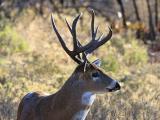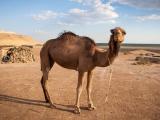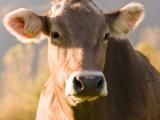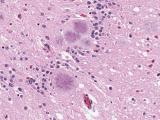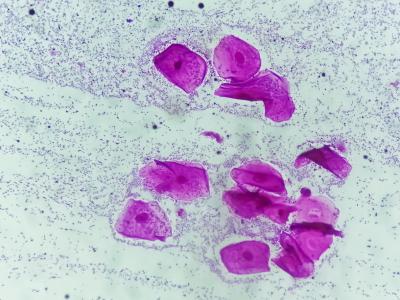Jun 10, 2003 (CIDRAP News) The hunt for additional cattle infected with bovine spongiform encephalopathy (BSE) in Canada is winding down after uncovering no evidence of the disease in about 2,700 cattle, Canadian officials announced yesterday.
At the same time, a Swiss veterinary expert applauded the Canadian investigation but called for increased BSE surveillance and a total ban on use of cattle parts in animal feed. The expert also said it is likely that more BSE cases will turn up in North America.
"Our active investigation is drawing to a close," Dr. Brian Evans, chief veterinary inspector with the Canadian Food Inspection Agency, said at a news briefing, a transcript of which was published.
Since the May 20 announcement that a cow from a northern Alberta farm had BSE, or mad cow disease, no other cattle have tested positive, Evans said. "Negative results means that currently the incidence of BSE in Canada confirmed remains confined to one cow."
About 1,700 cattle from 18 farms quarantined in the investigation have been slaughtered and tested for BSE, Evans reported. Another 1,000 cattle from 25 farms that were not quarantined also were slaughtered and tested, he said. Nine of the 18 quarantines had been lifted as of yesterday, he said.
Tests of cattle at three British Columbia farms that may have used poultry feed containing tissue from the infected cow have all come up negative, Evans said. In addition, officials have conducted about 200 inspections of feed processing plants and found good compliance with rules that ban the use of cattle and other ruminants (cud-chewing animals) in feed for ruminants.
Over the weekend (Jun 7 and 8), an international team of experts reviewed the Canadian investigation. Team leader Dr. Ulrich Kihm, former chief veterinary officer for Switzerland, speaking at the briefing, said Canadian officials "did a very, very good job," adding, "I have never seen such a comprehensive investigation done in a short time."
In response to questions, Kihm called Canada's BSE surveillance system, which is similar to the US approach, "a fairly good system." "You can of course improve it, and you have to improve it," he said. Later he elaborated, "What should go on really is that you check the highest-risk population on a continuous way. That has to be installed properly, that you get the submission of all those animals to the laboratory for testing."
Responding to other questions, Kihm said, "The risk is there that . . . we'll find a second or third case [of BSE], or even more. . . . I'm estimating that there will be other cases in this part of the world."
Kihm also recommended banning cattle and other ruminant tissue from all animal feed, not just ruminant feed. Canada, like the United States, bans the use of ruminant meat and bone meal in feed for ruminants but allows it in feed for poultry and hogs. "You have to remove the SRMs [specified risk materials] from the system. The human food chain as the animal feed chain," he said. "That's absolutely a must, and you have to enforce it."
Dr. Ron DeHaven, a veterinary official with the US Department of Agriculture (USDA), declined to predict how soon the United States would lift its ban on the importation of Canadian beef and cattle. The USDA needs to receive and digest a full report on the episode before it can make any decisions, he said.
Kihm said he would consider Canadian beef to be safe to export, but live cattle might not be. Apparently making the distinction between meat (muscle tissue) and other tissues such as brain and spinal cord, Kihm said, "Beef has no risk. It was never detected, [BSE] infection in beef." In European studies, he said, beef from BSE-infected cattle was injected into the brains of cattle but did not cause the disease.
Exports of live cattle are another matter, because BSE has an incubation period of several years, Kihm said. "So cattle, you have to make other assessments for opening borders." Switzerland had its first BSE case in 1990, and some European countries still won't import Swiss cattle today, he added.
See also:
Transcript of Jun 9 technical briefing by Canadian and US officials
http://www.usda.gov/documents/NewsReleases/2003/06/0199.doc
Canadian Food Inspection Agency BSE site
http://www.inspection.gc.ca/english/anima/disemala/bseesb/bseesbe.shtml
